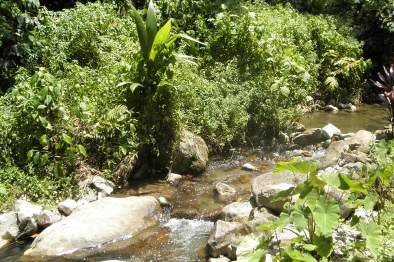Since then, the RCOF has grown considerably across the globe, maintaining its objectives of stimulating the development of climate capacity in National Meteorological and Hydrological Services (NMHSs) and to generate decisions and activities that mitigate adverse impacts of climate and help communities to adapt to climate variability.
The concept of a RCOF is not new to the Caribbean region as it had been initiated more than a decade ago in 1998 but could not be sustained. This was the impetus behind the Caribbean Institute for Meteorology and Hydrology (CIMH) mobilising regional NMHSs and other stakeholders to meet at the Caribbean Climate Outlook Forum (CARICOF) which was held in Barbados on March 1st - 2nd, 2012 to re-introduce the forum and discuss its potential implementation in the region.
The Caribbean Climate Outlook Forum (CARICOF) was supported by international organisations such as the World Meteorological Organisation (WMO), the United States National Oceanic and Atmospheric Administration (NOAA) and the United States Agency for International Development (USAID) who were significant contributors to the development and activities of the Regional Climate Outlook Forums (RCOFs) around the world.
A key feature of the RCOF is that it brings together experts in various fields such as local meteorologists and end users of forecasts in an environment that highly encourages interaction and knowledge sharing. In the Caribbean, there has been general consensus by NMHSs and other stakeholders that a RCOF should be developed in the region. Two of the major justifications being:
- At a national level NMHSs have limited capacities to prepare seasonal outlooks and engage with stakeholder agencies in their applications to decision making.
- There has been a considerable level of ongoing activities in the Caribbean region to generate, improve and use seasonal forecasts along with available teleconnections with tropical oceanic parameters and the associated predictive skills.
The meeting comprised of a mix of presentations, panel discussions and interactive sessions on both days which facilitated learning on climate change information and experiences at the national, regional and international levels.
Some of the presentations covered included Climate Outlooks and Climate Services for the Caribbean; Climate Disaster Risk Management and the Caribbean; the Regional Climate Outlook Forums Process and the Global Framework on Climate Services; among others. The panel discussions comprised of themes such as Regional Perspectives on Climate Impacts in Water and Agriculture; Climate Forecasting Tools, Training and Outreach; Making Early Warning Systems Locally Relevant; among others.
Global Water Partnership-Caribbean’s (GWP-C’s) Regional Coordinator, Ms. Avril Alexander attended the forum and served as a panellist on the first discussion "Regional Perspectives on Climate Impacts in Water and Agriculture." On the panel she discussed climate change and its relationship with water pointing out that water is a medium through which many climate change imapcts will be felt such as sea-level rise and changes in rainfall patterns. She highlighted the competition amongst various sectors for water such as agriculture and tourism along with the competing cost to provide water in terms of energy related costs.
Ms. Alexander also provided inputs on adaptation options for water supply on a national and regional level, identifying the development of Integrated Water Resources Management (IWRM) plans and policies as a major action. She also suggested that water security and climate resilience/adaptation should be integrated into development planning and decision making processes in national development plans.
Other participating organisations at the forum included:
- National Oceanic and Atmospheric Administration (NOAA)
- Caribbean Institute for Meteorology and Hydrology (CIMH)
- Caribbean Disaster Emergency Management Agency (CDEMA)
- World Meteorological Organisation (WMO)
- Barbados Water Authority (BWA)
- Caribbean Agricultural Research and Development Institute (CARDI)
- Caribbean Farmers Network (CaFAN)
- Caribbean Environmental Health Institute (CEHI)
- Caribbean Water and Wastewater Association (CWWA)
- International Federation of Red Cross and Red Crescent Societies (IFRC)
- Caribbean Regional Fisheries Mechanism (CRFM)
- Caribbean Natural Resources Institute (CARNARI)
- National Oceanic and Atmospheric Administration (NOAA)
- Caribbean Community Climate Change Centre (CCCCC)
- Caribbean Development Bank (CDB)
- Inter-American Development Bank (IDB)
- United Nations Development Programme (UNDP)
- United States Agency for International Development (USAID)
- The University of the West Indies (UWI), Mona Campus, Jamaica
